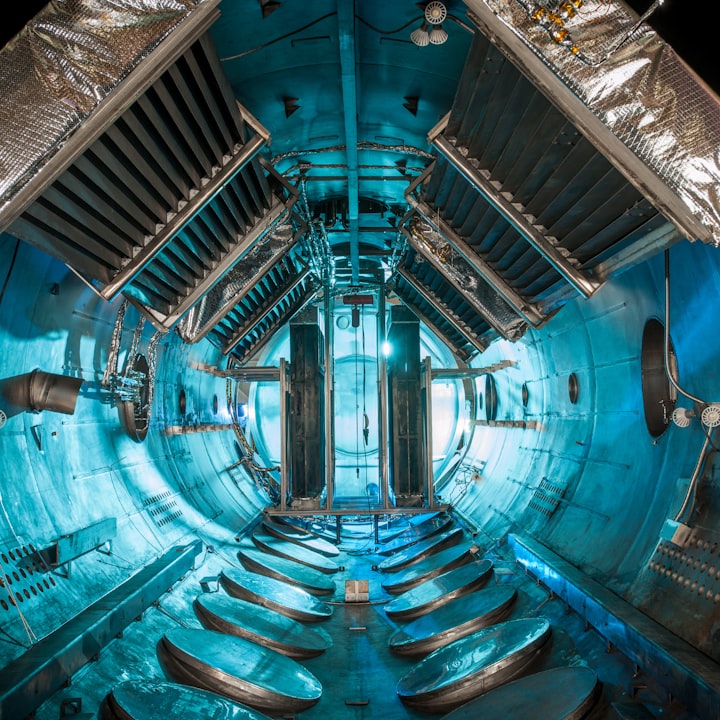Space travel needs to be slowed down!
ISS worm study shows that low gravity alters genes, especially nerve cells.
A study of worms on the International Space Station shows that the low gravity of space alters our genes, creating a potential impediment to future manned missions.
Researchers at the University of Teeter designed an experiment to study the effects of gravity on DNA by subjecting worms to experiments aboard the space station orbiting the Earth.
The team found that while most genes were only slightly affected, nervous system cells, or nerve cells as we know them, were particularly badly affected.
This is one of 30 papers published in the journal Cell Press that focuses on the effects of long-term space flight or low gravity on humans and other animals.
Meanwhile, NASA is ramping up preparations to put the first woman and a man on the moon in 2024 and on Mars in 2030 - a journey that will take eight months.
Knowing which genes are affected by space travel could help target treatments and reduce the dangers of space travel, said Tim Bridget, Ph.D., first author of the worm study.
Since the first astronauts arrived on the ISS in 2000, the station has conducted several investigations including worms, fruit flies, rats, and humans.
Of the 30 new papers published in the journal Cell, one saw worms sent to the ISS and another was placed on a centrifuge on Earth to study whether their genes changed in any way.

The team found that while most genes are only slightly affected by changes in gravity, nervous system cells, or neurons as we know them, are particularly affected.
According to the British research team, genetic changes may be the cause of many of the problems astronauts experience in space, such as vision and blood flow.
Reducing the effects of gravity on health could slow the decline of the body in space, a "critical step" in deep space exploration, and understanding the effects of low gravity on genes is an important first step in reducing those effects.
Dr. Ostrich said they looked at the levels of each gene in the worm genome and identified a clear pattern of changes caused by the lower gravity levels on the ISS.
These changes, he said, "may help explain why the human body reacts adversely to space flight." He added that this "provides us with some therapeutic targets to reduce the health effects of spaceflight."
The worms, called hydrophilic nematodes, were placed in a lower gravity environment than on Earth, where higher gravity is available through centrifuges.
The researchers then examined the genes before and after each experiment to better understand how gravity affects the genes and to look for possible treatments.
About 1,000 worms underwent "subtle changes" in their genes in the low-gravity environment.
First author Craig Willis, a Ph. D. student, says overcoming any physiological condition first requires an understanding of the underlying molecular mechanisms. He said: We have identified genes in neuronal function and cellular metabolism that are affected by changes in gravity."
The researchers found that some genes are more strongly affected, particularly the cells of the nervous system, which transmit information between different parts of the brain and nervous system through chemical signals and electrical impulses.
Willis said: These worms show molecular features and physiological characteristics similar to those of humans." "Our findings should provide the basis for a better understanding of the decline in mammalian health caused by spaceflight, and ultimately human health."
Dr. Coolidge said:- "This study highlights the ongoing role of European and UK scientists in spaceflight life science research."
Another study, as part of this latest research, examined the effects of low gravity and spaceflight, as well as mitochondrial changes caused by spaceflight.
A multidisciplinary team at NASA's Ames Research Center (ARC) found common causes of bone and muscle loss, immune dysfunction, and heart and liver problems in astronauts through data collected from several different sources. They found that mitochondrial dysfunction was the cause of these problems.
Senior author Flashing Behest said, "We first wanted to know if there was some universal mechanism in the body in space that could explain our observations." "We repeatedly found that something was happening with mitochondrial regulation that was causing everything to be out of whack."
They found that problems in the liver, eyes, and other parts of the body were all linked to mitochondria-related pathways - so further research revealed a common link.
Behest says: "I was completely stunned to see that mitochondria are so important because they were not on our radar." The team hopes to now develop countermeasures, including drugs to reduce the risk of mitochondrial disease.
Another study, conducted by the Sanford Burn ham Pr by Institute for Medical Discovery, found that fruit flies that had lived on the ISS for half the time (i.e., a few weeks) "experienced dramatic structural and biochemical changes in their hearts."
The study, published in Cell Reports, suggests that astronauts who spend a long time in space - the time it takes to form colonies on the moon or travel to distant Mars - may suffer similar effects.
The study also reveals new insights that may one day help people on Earth who are on long-term bed rest or suffering from heart disease.
"For the first time, we can see the cellular and molecular changes that may contribute to heart conditions in astronaut studies." Karen Orr, an author of the study, said.
"We conducted this study to understand the effects of microgravity on the heart, and now we have a road map that we can use to develop strategies to keep astronauts' hearts strong and healthy."
The results of the study on worms were published in the journal I Science.
About the Creator
Sue Torres
Is there any other reason to live to change the world?







Comments
There are no comments for this story
Be the first to respond and start the conversation.